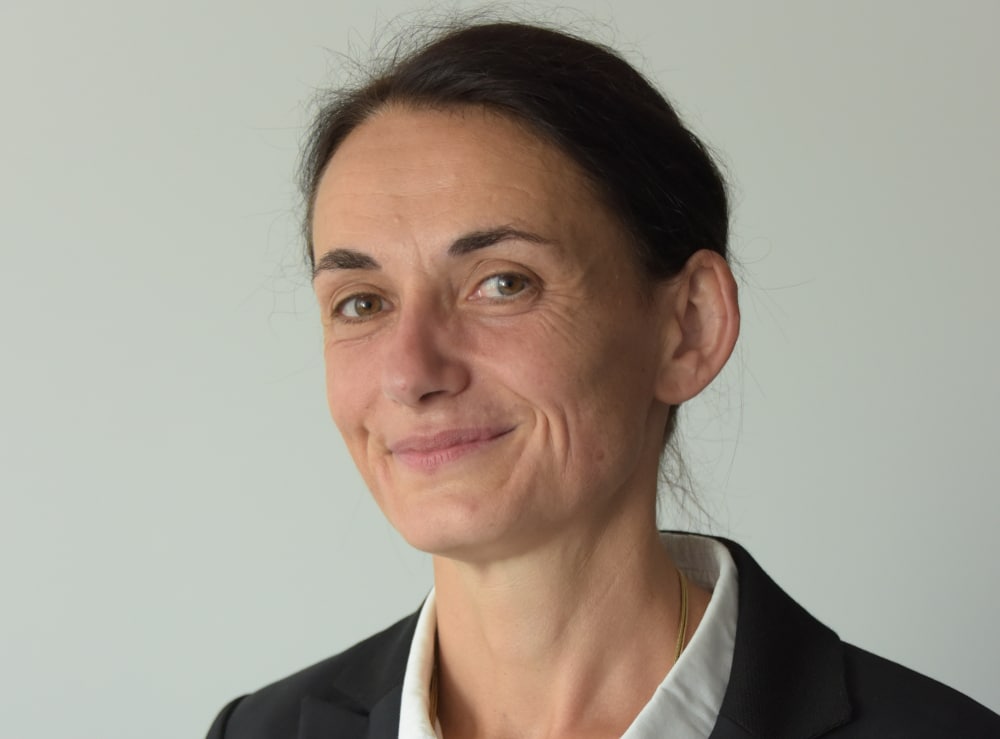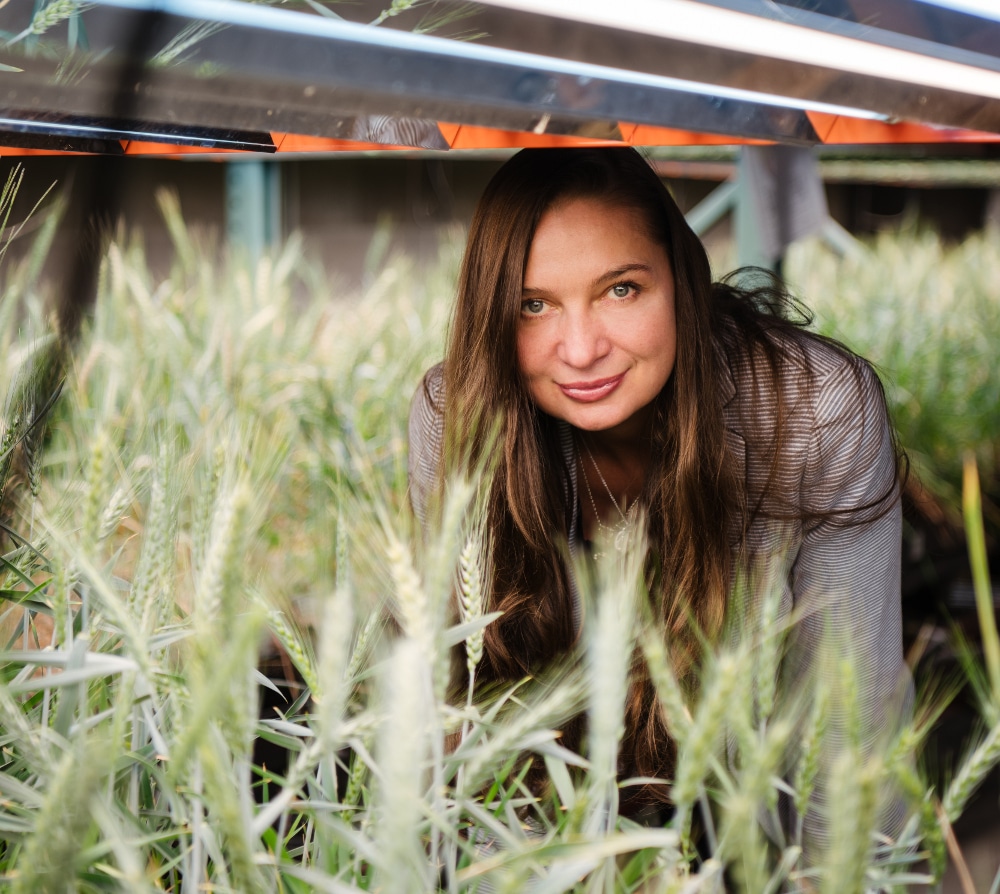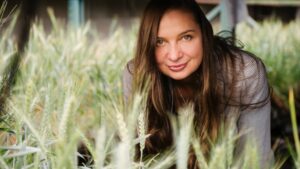In January of 2015, Tatiana Henry found herself and her team at Europe’s Limagrain Field Seeds caught in perhaps the most challenging situation they had ever faced.
After a ceasefire between the two sides collapsed, Russians and Ukrainians found themselves submerged in an armed conflict that sent the region into upheaval. The conflict itself was the result of what is known as the War in Donbass, an ongoing conflict in the Donbass region of Ukraine. Since the start of the conflict there have been more than 20 ceasefires, each intended to remain in force indefinitely, but none of them stopping the violence.
At the time, Henry led a team charged with the task of ensuring growers had access to field seeds.
Now the chief executive officer of Limagrain Cereals Research Canada, the experience taught her the value of staying focused on the road ahead and not quitting when things get hard — a key quality for any good leader to have.
Based in Fort Collins, Colorado, where she also serves of CEO of Limagrain Cereal Seeds, Henry talked to Germination from her home office, which she has been working out of pretty much full-time since March. For someone who until then spent up to 60% of her time travelling internationally, staying at home has been a real change for her.
“It’s been a lot of conference calls, for sure,” she says with a chuckle, adding she’s always liked the solitary experience of focusing on her work alone at a desk. As a child growing up in Ukraine, she spent a lot of time in her father’s lab. He was a physics scientist, and after school she’d run there to do her homework. It was quiet, and she was able to concentrate. Her mother was involved in the Ukrainian textile industry.
“My family had no real involvement in agriculture, but I grew up around science,” the 44-year-old mother-of-three says.
“I always liked biology, chemistry and math. You combine those and you have agronomy. When I called my mom and said I got into the ag faculty in Kiev, she was surprised and asked what I wanted to do when I finished my studies. I said agronomy. She replied, ‘Really, you have to study for that?'”
After attending university in Ukraine and graduating in 1999, she went to France and was accepted into an agricultural engineering school in Paris. She spent two years getting a French degree in life science engineering.
That took her to Dow Agrochemical, where she spent two years before a major company restructuring happened. She left Dow in 2002 and went back to university, this time to study business in Nice, France.
Following that, France-based Limagrain called and asked if she’d like to work in vegetable seed. After five years in the vegetable business she moved to the field crops business within Limagrain Europe. They were looking at establishing subsidiaries in Ukraine and Russia, and the company felt she might be the person to help do it.
“It was a wonderful experience. A bit strange after spending years in France. It was a shift for me from Ukrainian to French life, then going from French back to Ukrainian and also Russian life,” she says.
Fast-forward to 2015, and the collapse of the Russia-Ukraine ceasefire. She was in charge of two teams that worked side-by-side, Russians and Ukrainians. When the conflict began, they could no longer be in regular contact. Seeing one another in person was out of the question. Direct flights between the two regions were cancelled.
“It was so hard, but despite everything, we were very successful. We managed to supply seed for all our territories, even those affected by the military conflict. Our people delivered the seed even as the conflict was raging.”

Leadership in Uncertain Times
Henry has emerged as a resilient leader in times that call for keeping one’s eye on the finish line.
Viktor Karbivskiy, CEO of Limagrain Field Seeds based in Ukraine, remembers working with her during the armed conflict in 2015.
“That was a difficult time for all of us, and the eastern part of Ukraine still lives with the ramifications of that. It was very difficult to know how far it would go and what would happen next. For Tatiana it was even more difficult, as she was responsible for the seed business in Ukraine, Russia and Belarus at the time,” he recalls.
“She managed to maintain a respectful attitude toward everyone during that crisis, which was a challenge because emotions ran so incredibly high. Under her leadership we organized many face-to-face meetings with our partners in order to understand how we could help them, and things worked out very well thanks in no small part to her communication skills and sound advice.”

Piotr Szalacha, lead for Syngenta Seedcare in the Europe, Africa & Middle East region, met Henry when she was working to build the Limagrain subsidiaries in Ukraine and Russia.
He says he was struck by her ability to navigate an often-thorny environment and successfully build relationships.
“This is the area where crises are quite frequent, so managing that, having the flexibility and agility needed to do that, are strong parts of her,” he says. “Also, this is a part of the industry where you rarely see a woman in a leading position. It’s a little bit of a man’s world, so that’s been an additional challenge she has successfully overcome.”
Having moved to Limagrain Cereal Seed (LCS) and Limagrain Cereals Research Canada (LCRC), she is now putting Limagrain’s two North American subsidiaries on the map.
“We have important business activity here in the U.S. Our Canadian operations are more recent, but a really important piece of the overall picture for Limagrain in North America,” she says.
Currently Limagrain has subsidiaries in 56 countries with more than 10,000 permanent employees spread out all over the world. Limagrain is the world’s top vegetable seed company, and sixth overall in field seed production.
While its operations in Europe and Asia are cemented, its North American cereal presence is much younger. While LCS has been operating for eight years with breeding stations in Washington State, Kansas and Indiana, LCRC is a much younger entity. It launched its first two varieties, both wheat, in early 2020.
Both varieties — CS Accelerate and CS Daybreak — are being sold by Canterra Seeds and are the first two cereal varieties to be a part of Canada’s Seed Variety Use Agreement (SVUA) pilot project.
The SVUA is Canada’s attempt to introduce a trailing seed royalty to help generate revenue for variety development. Henry notes while other parts of the world have embraced private cereal breeding, Canada is only now beginning to do so.
“If you take the European market for example, 80% of the acreage is covered by cereals coming from the private breeding programs. Public research has very little market share in Europe,” she says.
“In the eastern U.S., more than 60% of the soft red winter wheat in the ground comes from the private sector breeding community. Generally, public breeding is declining every year, but it depends on the state. In the Central Plains region — Oklahoma, Kansas, Colorado, Nebraska — public research is very strong.”

According to Dave Hansen, president of Canterra Seeds, it’s Henry’s experience with various funding models around the world that makes her so effective at advancing the SVUA and LCRC.
“The SVUA is a fundamental concept for any cereal business that is reliant on results. We have to be able to justify our existence by bringing strong products to market, and the SVUA provides the resources and dollars we need to do that,” Hansen says. “Tatiana has the experience from working abroad to ensure the success of the business and the new funding model we so desperately need in Canada.”
As Henry took on the management of Limagrain Cereal Seeds, she focused on turning the business into a profitable one, understanding the markets, exploring all business opportunities and bringing to commercial life the CoAxium project, notes C√©cile Richard, CEO of Limagrain Field Seeds’ Asia-Pacific operations.

“Tatiana is all about creating successes and does everything she can to turn complex situations into wins,” says Richard. “It helps that she’s a very engaged and committed person, very open-minded and transparent, with lot of courage and an amazing level of energy.”
Jason Reinheimer, senior breeder for LCRC based in Saskatoon, Sask., says Henry’s brand of energy is indispensable as the company ushers in a new era for private sector wheat breeding in Canada.
Reinheimer hails from Australia, where wheat breeding is virtually the sole purview of the private sector. He bred the two LCRC varieties that are part of the SVUA pilot program.
“Tatiana and I really gravitated toward each other. We both had to leave our home countries to join the business. We shared the common challenges of moving our families to a new home and all the hurdles that brings. We both come from successful operations abroad, and to share those perspectives on how to run a successful business and start something new has been great,” he says.
Henry says her core focus at LCRC is collaboration, especially with public institutions which she says the company can’t be successful without.
“The most important goal is to bring value to the grower and to be rewarded — via the SVUA — for our research and our efforts to create those new genetics. The public sector research going on right now can pay real dividends if the private sector forms those partnerships,” she says.
“The private sector is very focused on the business side and is very results-oriented, and when you pair that with laser-focused public sector researchers, you really do have a winning combination.”












